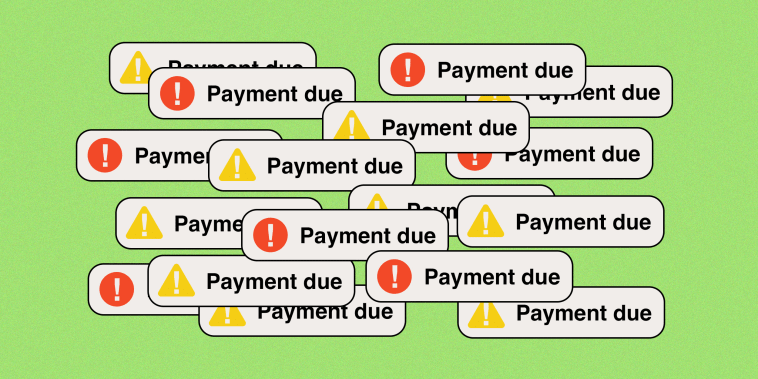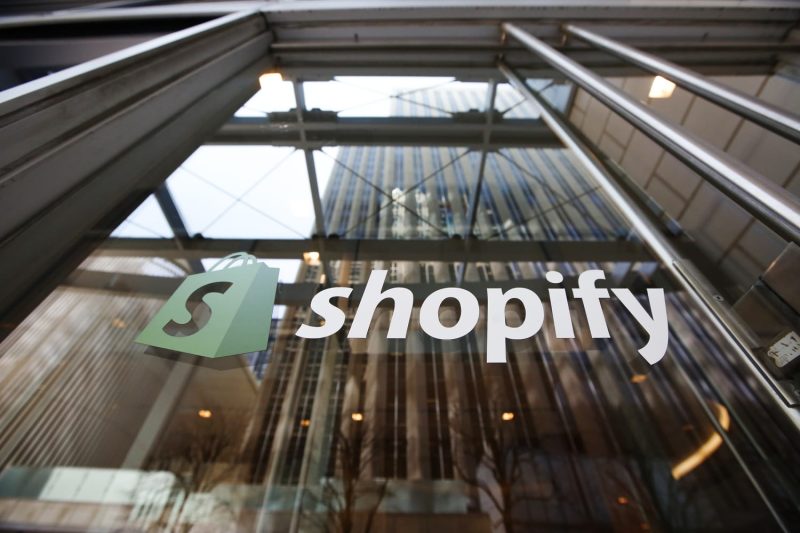Fear of credit card debt adds fuel to Buy Now, Pay Later

The explosion of “Buy Now, Pay Later” services has set off alarms that consumers are desperate, rushing into the largely unregulated installment loans after running out of mainstream credit options. While that’s the case for plenty of BNPL users, industry experts say many others are turning to the services by choice, seeing them as a complement — or alternative — to credit cards.
Texas mom Savannah Thrower, 27, has been using “Buy Now, Pay Later” to keep spending on clothes, shoes, makeup and household expenses while paying down her credit card balance.
“I feel like credit cards can be easier-to-spend money,” she said.
Using installment loans from Afterpay and PayPal “lessens the burden in the moment,” Thrower said, by breaking up her purchases into four equal payments that are deducted from her bank account every two weeks, avoiding interest and late fees.
She said most of her friends now take the same approach, and few in her circle still use credit cards consistently. “Why wouldn’t you do it?” she added.
I feel like credit cards can be easier-to-spend money.
Savannah Thrower, BNPL customer
What started as a tool to finance one-time purchases like exercise equipment or mattresses has surged in popularity. “Buy Now, Pay Later” spending skyrocketed more than 42% on Cyber Monday from the year before, according to Adobe Analytics. LexisNexis Risk Solutions, which performs credit screenings for many of these loans, found 1 in 4 American adults have used them at least once.
The services are also provided by Apple, Affirm, Klarna, Zip, Sezzle and others. Major credit card companies increasingly offer customers their own versions for large purchases, and Affirm announced Tuesday that it’s expanding to Walmart’s self-checkout kiosks.
For users, the process is often appealingly simple: With the touch of a “Buy Now” button and less than two seconds for a “soft” credit screening at checkout, a loan in the amount of the item’s or service’s purchase price is approved. For its term — typically six weeks, with payment installments set at regular intervals — there are no interest or fees as long as the balance is fully paid off on time.
But the simplicity is only part of the draw, industry experts say.
“There is a whole generation of millennials like me who saw what happened in the wake of the financial crisis, and they don’t want to fall into that trap again,” said Matt Gross, senior director of communications at Affirm.
Consumer bankruptcies surged in the ensuing recession, peaking around 1.5 million in 2010, as many Americans struggled under crushing debt loads. Legions of consumers now in their teens, 20s and 30s grew up in households where mortgage and rent payments, credit card bills and student loans have been sources of agonized conversation for years.
LexisNexis found that more than half of BNPL users are 35 years old or younger and are more likely than traditional banking customers to have “thick” credit footprints, reflecting ample experience with mainstream lending.
We can reject the idea that consumers are turning to BNPL services as a last resort because they are less scorable.
Lexis Nexis Risk Solutions
“We can reject the idea that consumers are turning to BNPL services as a last resort because they are less scorable,” the researchers wrote. And while the installment loans draw higher shares of applicants with nonprime credit, roughly half of BNPL users have prime or near-prime scores.
Gross said many Affirm customers, like Thrower, use it to “smooth out their cash flows and manage their money a little more efficiently, to match their expenses with their income.”
At least three factors have made BNPL especially attractive right now, said ADP Chief Economist Nela Richardson: the late-pandemic surge in demand; the now “all but over” government relief that buoyed it and credit card APRs topping 20% as the Federal Reserve has hiked interest rates. For consumers, “it is a way to kind of escape” those pressures while continuing to spend, she said.
Kevin King, vice president of credit risk and marketing at LexisNexis Risk Solutions, agreed.
“This is an incredibly convenient, affordable financial product,” he said, at a time when many consumers remain frustrated by higher prices and squeezed by resumed student loan payments, but “there are pros and cons.”
BNPL firms can still send customers into debt collections or boot them permanently for nonpayment. (Most earn transaction fees from merchants, reducing the need to hang on to delinquent customers and charge them interest and penalties, King said.) The companies also don’t universally report to credit agencies, and while missing payments can still dent a user’s credit score, paying on time doesn’t frequently boost it — at least for now.
Major credit agencies are working with BNPL providers on standards that would reflect users’ behavior on credit scores, said Liz Pagel, senior vice president of consumer lending at TransUnion, adding, “It is coming soon.”
But according to Ethan Dornheim, FICO’s vice president of scores and predictive analysis, “the ‘when’ is the million-dollar question.”
There’s no question many BNPL users would welcome the chance to improve their credit by using the services. Indeed, even many of the shoppers turning to BNPL out of a healthy fear of credit card debt are struggling with it all the same.
A number of these consumers are already facing financial stress, which is among the reasons they’re turning to these tools.
Mark Hamrick, Bankrate senior economic analyst
National credit card debt has hit a record $1 trillion, with the average balance at a 10-year high of $6,088. The Consumer Financial Protection Bureau found this year that BNPL customers were more likely to also use credit cards, payday loans and other high-interest financial services, while 18% of BNPL users had at least one reported delinquency in other accounts, that was true of just 7% of nonborrowers.
“A number of these consumers are already facing financial stress, which is among the reasons they’re turning to these tools,” said Mark Hamrick, senior economic analyst at Bankrate. The transactions’ frictionless nature, and the ability to have multiple BNPL loans active at once, could lead to overspending — especially around the holidays.
“In a perfect world, gift buyers would be saving all year long and purchasing primarily with cash,” he said. “But that’s not the world we live in.”



